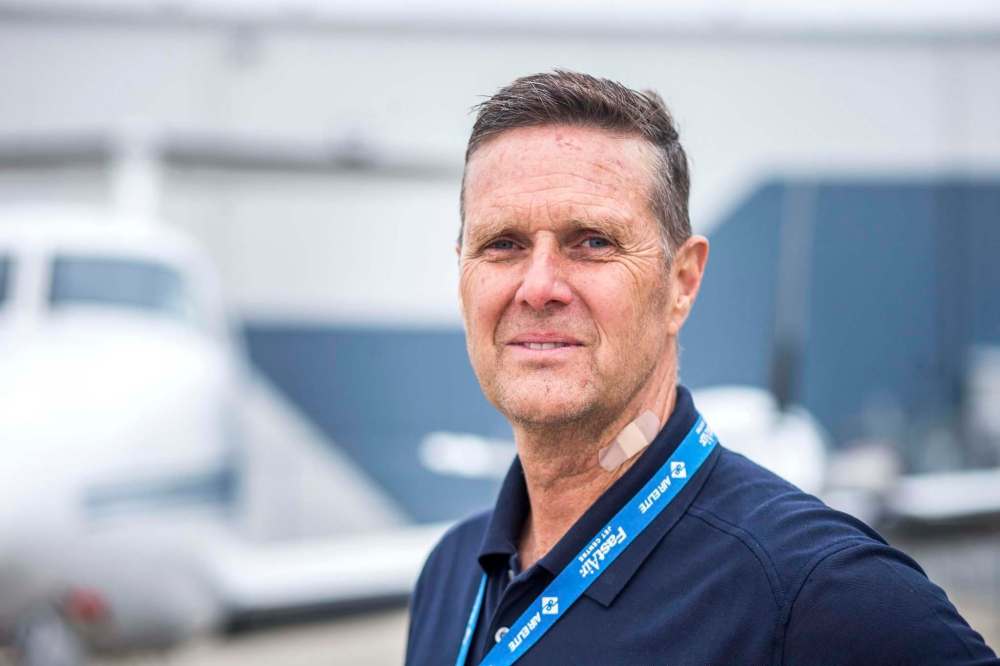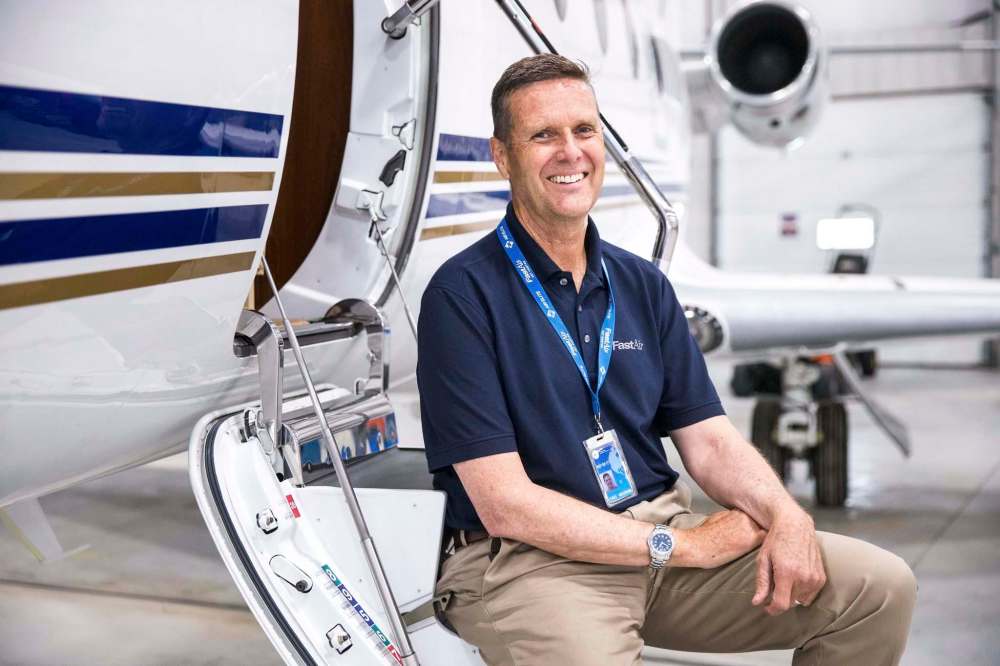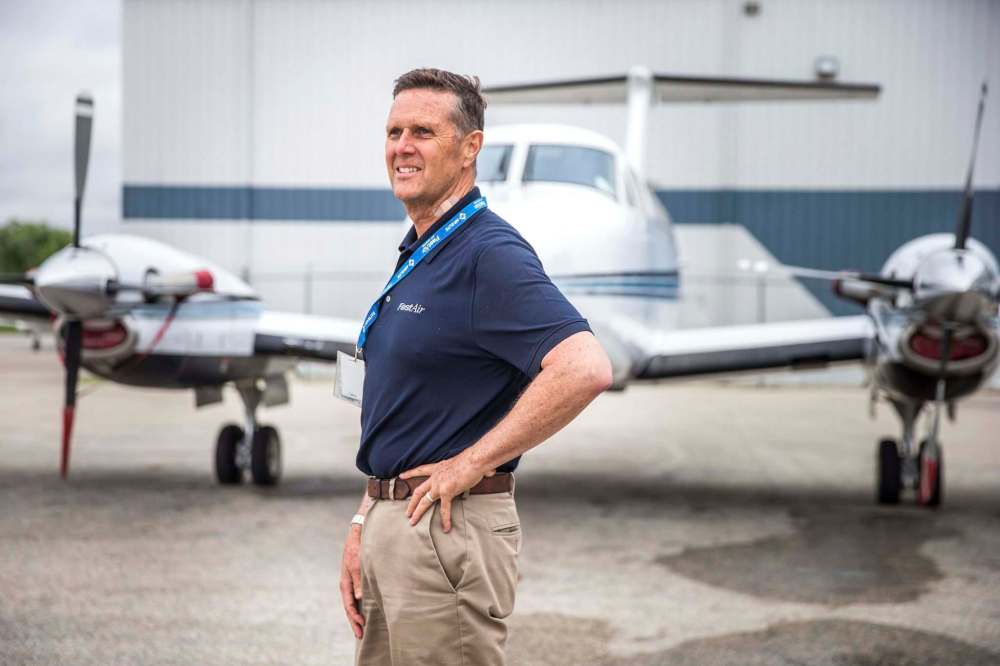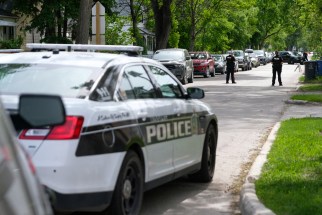Taking flight Traffic recovering quickly at Fast Air business aviation terminal
Read this article for free:
or
Already have an account? Log in here »
To continue reading, please subscribe:
Monthly Digital Subscription
$0 for the first 4 weeks*
- Enjoy unlimited reading on winnipegfreepress.com
- Read the E-Edition, our digital replica newspaper
- Access News Break, our award-winning app
- Play interactive puzzles
*No charge for 4 weeks then price increases to the regular rate of $19.00 plus GST every four weeks. Offer available to new and qualified returning subscribers only. Cancel any time.
Monthly Digital Subscription
$4.75/week*
- Enjoy unlimited reading on winnipegfreepress.com
- Read the E-Edition, our digital replica newspaper
- Access News Break, our award-winning app
- Play interactive puzzles
*Billed as $19 plus GST every four weeks. Cancel any time.
To continue reading, please subscribe:
Add Free Press access to your Brandon Sun subscription for only an additional
$1 for the first 4 weeks*
*Your next subscription payment will increase by $1.00 and you will be charged $16.99 plus GST for four weeks. After four weeks, your payment will increase to $23.99 plus GST every four weeks.
Read unlimited articles for free today:
or
Already have an account? Log in here »
Hey there, time traveller!
This article was published 09/06/2020 (2016 days ago), so information in it may no longer be current.
At the Winnipeg Richardson International Airport, passenger traffic is still down about 90 per cent from its pre-COVID days.
But over at the Fast Air business aviation terminal, traffic is already approaching about 50 per cent of the activity it saw before travel bans were implemented.
“I was in at 6:30 this morning because we had six flights between 7 and 7:30,” Dan Rutherford, Fast Air’s manager of marketing and business development, said on Tuesday.
The International Air Transport Association is projecting that the global airline industry will lose US$84.3 billion in 2020.

“Financially, 2020 will go down as the worst year in the history of aviation,” the IATA said in a report published Tuesday.
It’s not to say the business aviation industry is immune to the COVID-19 travel concerns that has brought the global commercial aviation industry to its knees — or that the private jet business is always that busy in Winnipeg — but the flexibility and ability to manage its environment has allowed business to start ticking up a little quicker.
“Initially there was a lot of activity just getting people home. Then there was a lull for three-to-four weeks,” Rutherford said of the kind of work Winnipeg-based business jets have been undertaking of late.
“Then it started to heat up. People are saying there is a meeting that they just have to be on site for. We are able to do that and we’re starting to see more of that.”
“Financially, 2020 will go down as the worst year in the history of aviation.” – IATA report
The almost total shutdown the commercial aviation industry has experienced means it is not going to re-emerge with the coverage and cost dynamics it enjoyed in pre-pandemic times.
Industry observers believe there might be a brief price holiday when travel opens up, but much smaller customer loads — because of social distancing — will drive operating costs up which will almost certainly drive ticket prices up.
No one can say exactly how it will shake out but the airlines’ inventory will likely decrease and routes that are not productive will be dropped. So whereas last year there might have been 10 flights a day to Toronto, that might be cut in half and cost twice as much.
“Those are the kinds of things that are going to really affect air travel and we’re already hearing people say ‘Maybe we should look at a light jet or a charter,’” said Rutherford.

Winnipeg is hardly a business aviation hub, but Fast Air has seen an increase in arrivals and departures since the widespread travel shut down began in mid-March.
Fast Air, which owns and/or operates about 25 turboprop and small jet planes for private customers and charter services, is starting to get inquiries from customers it has never dealt with before.
“We just got a call from someone asking about whether or not we could take two couples to Scottsdale, Ariz.” Rutherford said. “We did not do much of that before. We have already begun to think about the fall and putting together something to enable people to get to their winter homes.”
Not to say Winnipeg is about to become a business aviation hub, but WingX, a U.K. data analytics and consulting company, said in a recent report that the best performing segments are very light and entry level jets, and turboprops — the kind that Fast Air manages — as opposed to more extravagant corporate jets. For instance, a trip to Minneapolis for a meeting might cost $6,000-to-$7,000 on a King Air Beechcraft turboprop compared to twice that on a light jet.
“People are saying there is a meeting that they just have to be on site for. We are able to do that and we’re starting to see more of that.” – Dan Rutherford
Fast Air also owns the business jet terminal and fuelling business that used to be known as the Esso Avitat (now called the Fast Air Jet Centre) and it’s starting to a growing number of business aircraft arriving there.
“Some of our traditional clients are not flying as much maybe because of concerns about COVID, maybe because of the financial impact, but at the same time there is a surge of new people contacting us and that’s making up some of that deficit,” Rutherford said.
The heightened public health concerns and limiting exposure to large buildings and public spaces has caused many companies to look for other options when they need to travel.
For instance, the Fast Air’s terminal, which has the capacity to handle as many as 40 people, is being limited to no more than 15 people.
“Using a private terminal makes it so much easier to control what is going on and mitigating risks,” he said. “Our doors are locked. We greet people at the door with mask and PPE and they can be on a flight in 10 minutes.”
Transport Canada mandates that pilots and all passengers on business aviation flights have to wear masks.
martin.cash@freepress.mb.ca


Martin Cash has been writing a column and business news at the Free Press since 1989. Over those years he’s written through a number of business cycles and the rise and fall (and rise) in fortunes of many local businesses.
Our newsroom depends on a growing audience of readers to power our journalism. If you are not a paid reader, please consider becoming a subscriber.
Our newsroom depends on its audience of readers to power our journalism. Thank you for your support.






